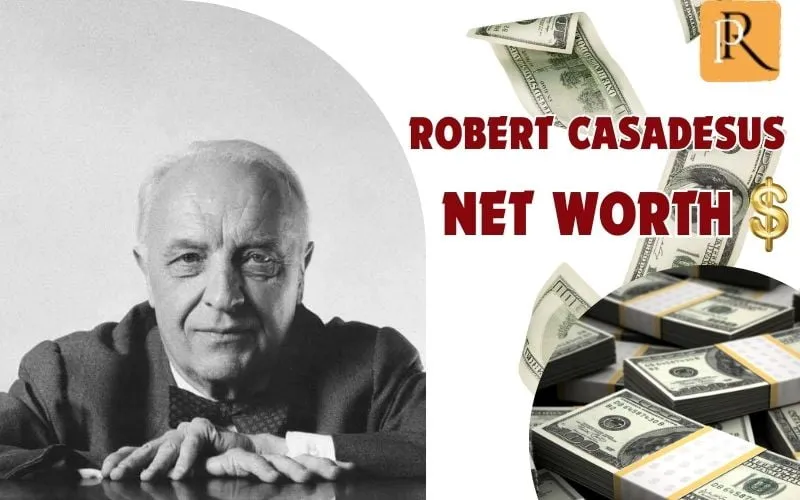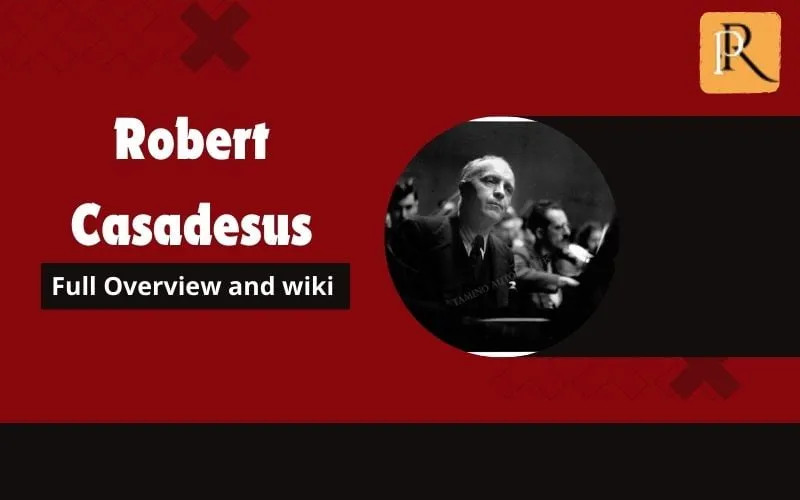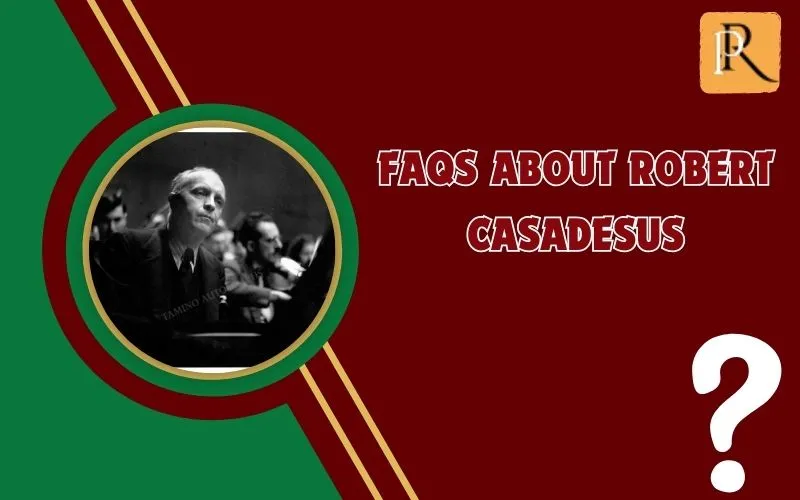Welcome to a deep dive into the life of Robert Casadesus, one of the most accomplished classical pianists and a revered figure in music history. His legacy is not only in his performances but also in the impressions he left behind.
What exactly is Robert Casadesus’s net worth and how do his finances reflect his illustrious career? This article explores the numbers behind the name.
Quick information
| TRUTH | DETAIL |
|---|---|
| Real name | Robert Marcel Casadesus |
| Popular name | Robert Casadesus |
| Sex | male |
| Date of birth | April 7, 1899 |
| Age at death | 73 years (Died September 19, 1972) |
| Parents | Robert Casa |
| Siblings | do not apply |
| Place of birth | Paris, France |
| Nationality | French |
| Nation | French |
| Education | Paris Conservatory of Music |
| Marital status | Married |
| Sexual orientation | heterosexual |
| Wife/Wife/husband | Gaby Casadesus |
| Children | Jean, Guy and Therese Casadesus |
| Dating | do not apply |
| Net value | do not apply |
| Origin of wealth | Music, performance, teaching |
| Year of operation | do not apply |
| Category | Classic music |
| Height | do not apply |
What is Robert Casadesus net worth in 2024?

Specific financial records of Robert Casadesus’s net worth are not publicly available – largely due to the era in which he lived and the nature of his income.
Robert Casadesus Full Overview and Wiki

Early training and musical foundation
Robert Casadesus was born into a musical family in Paris, where he began studying music at the Conservatoire de Paris. Under the tutelage of Louis Diémer, he quickly excelled, winning top titles such as the Premier Prix in 1913 and Prix Diémer in 1920.
These early awards set the stage for his lifelong commitment to classical music, especially his deep connection to chamber music influenced by his family’s involvement. in the Capet Quartet.
Collaboration and touring
In the 1920s, Casadesus’s career began to flourish. His important collaboration with Maurice Ravel in 1922, which included the creation of piano rolls for Ravel’s compositions, marked an important development in his career.
This collaboration also led to joint concert tours in France, Spain and England, where Casadesus’ talent was showcased on international platforms.
During these years, his marriage to pianist Gaby L’hôte in 1921 played a central role, as they often performed together, becoming a famous duo in the classical music scene.
Teaching and Influence
Beginning in 1935, Casadesus assumed a teaching role at the American Conservatory at Fontainebleau. His influence as an educator was profound, shaping the next generation of musicians. The outbreak of World War II caused him to move to the United States, where he continued his teaching and performing career.
During this time, he also founded the Fontainebleau School in Newport, Rhode Island, further cementing his impact on music education in America.
Postwar contributions and legacies
After World War II, Casadesus returned to France and continued his duties at Fontainebleau. His final years were marked by continued performance and commitment to recording, with particular emphasis on the works of Mozart, Beethoven and Ravel.
His recording sessions with major orchestras such as the New York Philharmonic and the Cleveland Orchestra, under conductors such as John Barbirolli and George Szell, are especially celebrated. These recordings are important in understanding his interpretive genius and technical proficiency.
Record achievements and artistic values
Casadesus’s discography is extensive, with a significant focus on Ravel’s complete piano works, for which he received many awards. His ability to interpret Ravel’s complex compositions with clarity and emotional depth is evident in these recordings.
Additionally, his performance of Beethoven’s violin sonatas with violinist Zino Francescatti, demonstrated his versatility and collaborative spirit.
His later years and influence continue
Robert Casadesus continued to compose and perform until his death in 1972. His final work, the Israeli Symphony No. 7, demonstrates his profound musical intelligence and compositional skill.
Even after his death, Casadesus’ legacy lives on through his recordings, his influence on his students, and the musical standards he set, which continue to inspire inspiration for classical musicians around the globe.
Personal life
Robert Casadesus was married to Gaby Casadesus, nee L’hôte, also a famous pianist. The couple married in 1921. They had three children: Jean, Guy and Therese.
Social media accounts
- Facebook: Not applicable
- Twitter: Not applicable
- Instagram: Not applicable
- YouTube: Not applicable
Frequently asked questions about Robert Casadesus

Who is Robert Casadesus?
He was a prominent 20th-century French pianist and composer, known for his interpretations of French piano music and his own compositions.
What are some notable achievements in Casadesus’ career?
He had a successful recording career, notably recording the complete solo piano works of Ravel and works by composers such as Beethoven, Mozart and his own compositions.
Which composers do you regularly record?
He recorded many composers including Beethoven, Mozart, Ravel, Debussy and Chopin.
What’s unique about Casadesus’s gameplay?
He is celebrated for his precision, clarity and elegance, embodying the virtues of French pianism with a crisp, sparkling sound that resembles vintage champagne.
Does he compose any music?
Yes, he composed a wide variety of works, including orchestral symphonies, concertos, chamber music, and piano recitals.
How does he relate to other musicians?
He is a member of a prominent musical family, including his wife, Gaby Casadesus, also a pianist, and his son, Jean Casadesus.
What awards or honors has he received?
Details of specific awards receive less attention, but his legacy is celebrated through his contributions and lasting influence on French music.
When did Casadesus die?
He died on September 19, 1972 in Paris.
Are there any notable recordings of Casadesus?
Yes, his recordings range from solo piano works to concertos, in collaboration with major orchestras and conductors such as George Szell and Eugene Ormandy.
What contributions did he make in terms of education?
Although a specific educational role is not often highlighted, his musical legacy includes educational aspects through masterclasses and as a source of study for pianists.
Conclusion
As we conclude our exploration of Robert Casadesus’s financial legacy, it is clear that his net worth is a testament to his lasting influence in the world of classical music. At Da Nang Polytechnic.com, we strive to bring you closer to the lives of leading classical pianists like Casadesus, providing both inspiration and fascinating insights.
Categories: Musician
Source: dut.edu.vn






